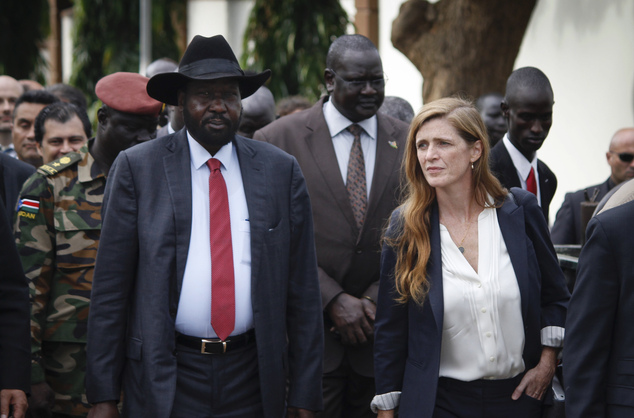-
Tips for becoming a good boxer - November 6, 2020
-
7 expert tips for making your hens night a memorable one - November 6, 2020
-
5 reasons to host your Christmas party on a cruise boat - November 6, 2020
-
What to do when you’re charged with a crime - November 6, 2020
-
Should you get one or multiple dogs? Here’s all you need to know - November 3, 2020
-
A Guide: How to Build Your Very Own Magic Mirror - February 14, 2019
-
Our Top Inspirational Baseball Stars - November 24, 2018
-
Five Tech Tools That Will Help You Turn Your Blog into a Business - November 24, 2018
-
How to Indulge on Vacation without Expanding Your Waist - November 9, 2018
-
5 Strategies for Businesses to Appeal to Today’s Increasingly Mobile-Crazed Customers - November 9, 2018
South Sudan Accepts Deployment of Extra 4000 UN Troops
“The transitional government of national unity gives its consent for the deployment of the regional force”, read a joint statement released by the United Nations and the government. The South Sudanese government has accepted the deployment of thousands of extra United Nations peacekeepers.
Advertisement
Both government and rebel forces have been accused of widespread abuses in the civil war that began in December 2013 between supporters of Kiir and former Vice President Riek Machar.
Although no details have yet emerged about what the Plan B would be, the UNSC resolution includes imposition of sanctions and arms embargo on the country which is already experiencing deteriorating economic situation.
Sunday’s decision by President Salva Kiir, who in August rejected more peacekeepers, came a day after the 15-member Security Council visited the capital, Juba, to press senior officials for approval of the new force.
South Sudan’s President Salva Kiir (C) holds a closed-door meeting with a high delegation from the United Nations (UN) Security Council, at the South Sudan’s state house, known as j1, in Juba on September 4, 2016. This is a clear message to the regime in Juba.
The visiting Security Council envoys on Saturday also toured a United Nations refugee camp in the capital, where tens of thousands of civilians have lived in squalor and fear during almost three years of fighting between forces loyal to Kiir and rebels trying to drive him from power.
He also said President Kiir’s government is a “failed leadership” which has turned against its own citizens, arguing that it was important the people should be temporarily protected by foreign forces from “this irresponsible government” until the needed change is effected in the country.
Despite a peace deal brokered on July 11, clashes continue.
Church leaders carry strong moral authority in Christian-majority South Sudan.
Protecting civilians has become an even more critical issue after fighting erupted in the capital, Juba, in July, killing hundreds and sparking fears of a return to civil war in the already devastated country.
Kiir had opposed the deployment of additional troops, initially touted as an “intervention force”, as breaching national sovereignty.
Advertisement
The Transitional Government of National Unity signals its readiness to implement Chapter V of the Agreement on the Resolution of the Conflict in South Sudan, including to work with the African Union in setting up the Hybrid Court for South Sudan as soon as the African Union provides proposals for its work as provided in the Agreement.





























